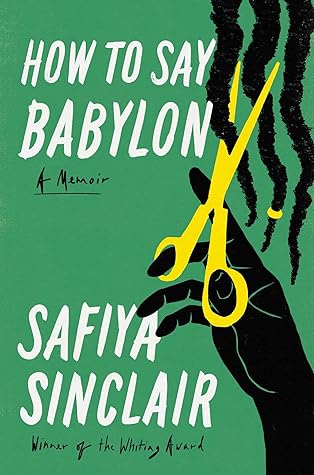More on this book
Community
Kindle Notes & Highlights
What did it mean, after all, to be the living answer to the fraught question of Black survival?
Next to the airport, looming along the borders of our village, were hotels with high walls made of pink marble and coral stone, flanked on top by broke-glass bottles, their sharp edges catching the light in cruel warning: To live in paradise is to be reminded how little you can afford
This was the fantasy tourists wanted to inhabit, sunbathing at hotels along the coast named “Royal Plantation” or “Grand Palladium,” then getting married on the grounds where the enslaved had been tortured and killed. This was paradise—where neither our history nor our land belonged to us.
that growing list of NO.
Back then there was hardly any decision I made, hardly a thought I formed, without first imagining what Dad would say about it, what Dad would do about it.
No matter how close we clung together, the unpredictability of our new life eventually fostered a distrust of any kind of joy or period of calm, which then hardened into a wariness of outsiders we four would spend our lives struggling to shake.
My father frowned, eyes scouring me up and down, as if in growing taller, I had done something wrong. I was only nine years old, still years away from puberty, but he inspected me like fruit on the verge of rot.
I came to realize that what my father wanted, on his return from Japan, was the perfect daughter. And when a Rastaman said daughter, he meant both his wife and his child, as my father called my mother his “dawta” when speaking to his Rasta bredren, who also called their partners their dawtas. For the men of Rastafari, the perfect daughter was everything a woman was supposed to be. The perfect daughter was whittled from Jah’s mighty oak, cultivating her holy silence. She spoke only when spoken to. The perfect daughter was humble and had no care for vanity. She had no needs, yet nursed the needs
...more
“My god, you speak so well,” another white man said. “You speak so well,” they all said, several times. I was unsure how else I was supposed to speak.
In high school the condition of a girl’s body was always on trial—who
I realized that I should have expected this. That my father had offered the Old Poet deference and fawning smiles and saved his anger only for us, just as he sang like a prince to the tourists every night, then brought back his worst self to our family.
I looked at him and did not know this man. It was not just my obedience he wanted, but something much more lethal. How far would he go now to scald me clean?
I was terrified of myself. All those years of mistreatment in our house had warped me, and anger had become my first mode of expression. Anger and cruelty.
he wanted to terrorize us. Perhaps this terror was the last control he had left, giving him some shabby semblance of power in a world that reminded him every day that he was powerless.
After more than nineteen years, my father still could not see me. To him, nothing I wrote would ever matter. Poetry was the voice I had forged because for so long I had been voiceless; I had written every word because I wanted him to hear me. Now I knew he never would.
was oblivious to the signs of what she had been experiencing my entire life. How one could live under the influence of a partner so long that any other possibility seemed terrifying. How one could be isolated from your family, controlled, and made powerless. How one could be too shell-shocked to ever leave. How so few women ever made it out.
Every time he called me “girl” it was a calculated chisel strike, purposefully chipping me away. There in his performance I saw it plainly before me, finally. He knew what it meant to cut me down, was doing it even now as we stood before Babylon. As long as I lived under his roof, he would never respect me. He would never see me as a person with value, my gender forever robbing me of his esteem.
I ride around town with a white writer from a Bay Area suburb who voted for Obama, but who sings the n-word out loud to his favorite rap songs. White America, a violence.
I asked him gently if she would grow up under the strictures of Rastafari. My brother smiled and told me, “That will be for Cat alone to choose.” She would eat what she liked, wear what she liked, she would fix her hair however she wanted. “I’ve seen what all my sisters had to live through,” Lij said. His daughter would be free to make her own way through the world.


